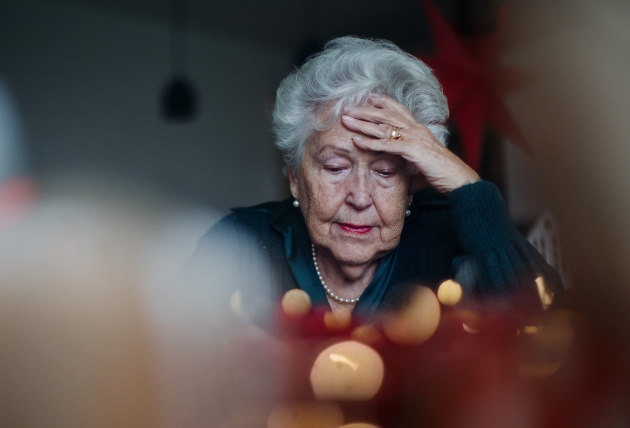What we do
Expert resources for behavioral health.
The COE-NF specializes in three behavioral health topics that affect the quality of life for nursing facility residents. We offer easily accessible resources that can help to guide care and improve outcomes.
Serious Mental illness (SMI)
Serious Mental Illness (SMI) are mental disorders that significantly impact a person’s thinking, mood, and/or behavior, and can make it a struggle to work, keep up with school, have healthy relationships, socialize, maintain hygiene and more.
Common SMI diagnoses are:
Bipolar Disorder: brain disorder that causes intense shifts in mood, energy and activity levels
Major Depressive Disorder (MDD): may include feelings of sadness, hopelessness, anxiety, worthlessness and fatigue
Schizophrenia: a chronic disorder that causes people to interpret reality abnormally; people may experience hallucinations, delusions and extremely disordered thinking

Treatment Options:
Often consists of a combination of psychotropic medication and psychotherapy. With early and consistent treatment, it is possible to manage these conditions and lead a meaningful, productive life.
Substance use Disorders (SUD)
A Substance Use Disorder (SUD) is a mental disorder that affects a person’s brain and behavior, leading to a person’s inability to control their use of substances such as legal or illegal drugs, alcohol, or medications. Both legal and illegal substances can be misused. Symptoms can range from moderate to severe, with addiction being the most severe form of SUDs.
Diagnoses of substance-related disorders fall under the following eight classes of drugs:
Alcohol
Cannabis: Marijuana
Hallucinogens: PCP, ketamine
Phencyclidine and other hallucinogens: MDMA-ecstasy
Opioids: Heroin, Fentanyl, Oxycodone
Sedatives, hypnotics, or anxiolytic: Benzodiazepines, zolpidem
Stimulants: Amphetamines, cocaine, methamphetamine
Inhalants: Vapors, gas, aerosol sprays, nitrates

Treatment Options:
Options can include residential placement, individual and group therapy, acute care, and medication management. Treatment may include behavioral therapies and medications tailored to an individual’s specific combination of disorders and symptoms, the person’s age, the misused substance and any specific mental disorder(s).
(SAMHSA and Diagnostic and Statistical Manual for Mental Health Fifth Edition)
Co-occurring disorders (COD)
The term “Co-Occurring Disorder” (COD) refers to the condition of having at least one mental disorder and at least one Substance Use Disorder (SUD).
Common Co-Occurring Disorders and symptoms may include:
General Anxiety Disorder (GAD): marked by excessive anxiety; intense, frequent and chronic worry
Depressive disorders: may include feelings of sadness, hopelessness, anxiety, worthlessness and fatigue
Bipolar Disorder: brain disorder that causes intense shifts in mood, energy and activity levels
Post-Traumatic Stress Disorder (PTSD): characterized by disturbing or upsetting memories and/or avoidance of uncomfortable situations following a shocking, scary or dangerous event

Treatment Options:
Options can include residential placement, individual and group therapy, acute care, and medication management. Generally, it is better to treat the SUD and the co-occurring mental disorders together rather than separately.
How can we help
For any questions on our services, or to find out more about how we can help, please provide some basic information on your facility by clicking on the link below.
Our Newsletter
Get all the latest information from the Center of Excellence for Behavioral Health in Nursing Facilities.





